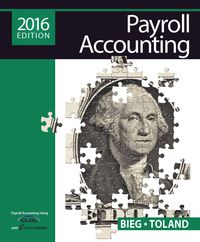Answered step by step
Verified Expert Solution
Question
1 Approved Answer
It is difficult to avoid the practice of riba (usury) in todays financial transactions. Conventional banks and insurance companies are adopting the practice as a
It is difficult to avoid the practice of riba (usury) in todays financial transactions. Conventional banks and insurance companies are adopting the practice as a means to gain profits, otherwise known as banking interest. Consumers are obliged to absorb riba automatically in any transaction or dealing, such as loans or insurance products, set by conventional banks and insurance companies.
Riba is the practice of making unethical or immoral monetary loans intended to enrich the lender by imposing additional means over a property, principal or capital unfairly. It is a form of prejudiced intrusion on peoples property without having to work to earn profits.
There are various opinions on the meaning of usury, albeit the transactions or lendings are generally contrary to the principles of Islamic muamalah. Thus, Islam forbids the practice of riba so as to maintain consumers dignity. In Islam, the philosophy of loans is to meet the needs of deserving individuals, and to foster and nurture affection among Muslims.
The practice of riba that imposes additional, unjustified charges may obscure these values and propagate exploitation against the needy. Debates on Islamic jurisprudence underline these types of riba as riba buyu (usury in buying and selling) and riba duyun (debt).
Riba buyu occurs in ribawi goods exchange, which differs in quantity. Ribawi goods are mediums of exchange such as gold, silver, currency or provisions (grains, wheat, etc). Therefore, transactions involving ribawi goods must adhere to agreed terms to avoid riba. For
FBA/PFD2233/APRIL21
CONFIDENTIAL/2
instance, the exchange of grains worth 1kg of Grade A with 2kg of Grade B, or buying gold on credit by time postponement, or in foreign currency transactions.
Secondly, riba duyun refers to any addition on the principal amount in the lending business either pledged by the borrower or the lender designated during the akad (contract) or caused by a default. It is prevalent in most conventional banks with car, housing, personal and other types of loans. For example, an individual borrows RM10,000 and agrees to pay an additional RM500 above the principal amount thereof, or five per cent charge, if he fails to pay the instalments.
The widespread deficiencies in current conventional banking and insurance practices have bigger effects on consumers than the benefits as argued in Quranic verses and the hadith. Thus, we have a big responsibility to promote Islamic banking and its products offered by takaful companies as alternatives to conventional practices, therefore attracting fair business and trade away from riba and Allahs antipathy.
a) Elucidate the types of usury in business transaction related to the above article
Step by Step Solution
There are 3 Steps involved in it
Step: 1

Get Instant Access to Expert-Tailored Solutions
See step-by-step solutions with expert insights and AI powered tools for academic success
Step: 2

Step: 3

Ace Your Homework with AI
Get the answers you need in no time with our AI-driven, step-by-step assistance
Get Started


